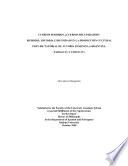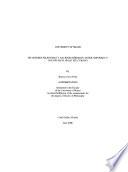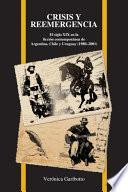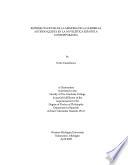Cuerpos Perdidos, ¿cuerpos Recuperados?: Memoria, Historia E Identidad En La Produccion Cultural Post Dictatorial De Autoria Femenina (argentina, Paraguay Y Uruguay).
Autores del Libro:
Resumen del Libro:

This dissertation is a transnational study of literary and filmic representations of violence lived by women under repressive regimes in the Southern Cone during the 1970s and 80s. It addresses the topics of collective memory and gender, representations of trauma (rape and torture) and discourses of power and resistance utilizing as my theoretical framework, Gender, Cultural Studies and Narratology. The thesis explores how three novelists–Renee Ferrer (Paraguay), Patricia Sagastizabal (Argentina) and Marisa Silva-Schultze (Uruguay) along with a testimonial collective project and two documentaries (Uruguay)–reflect upon the role of body in the process of identity reconstruction, that is, the notion of a subject defined by victimization and the narration of violence. The production by women that engages with topics of collective memory, gender and representations of rape and torture specifically related to women remains understudied. In regards to violence experienced by women, a comparative analysis reveals that sexual violence and the insile experience are all in the initial phase of being represented and discussed. Insiles refers to those women who despite not having been incarcerated remained captives of their countries repressive atmospheres. This comparative study sheds light on the similarities and differences of fictionalizing violence suffered by women from different countries but who were all victims of the same repressive political ideology (Plan Condor). In contrast to advocates that believe mourning should come to an end in the region, this work argues that women writers representations of violence are crucial for understanding literary and intellectual regional production as well as for developing studies about gender issues and violence. Through a careful analysis of the texts identified above, this thesis highlights the paradoxes that define the current situation of Memory and Trauma Studies: memory both embodied and transcending the body, the …
Formatos Disponibles: PDF / EPUB
Opciones de descarga:
Si deseas obtener una copia del libro puedes usar alguna de las siguientes opciones de descarga:



